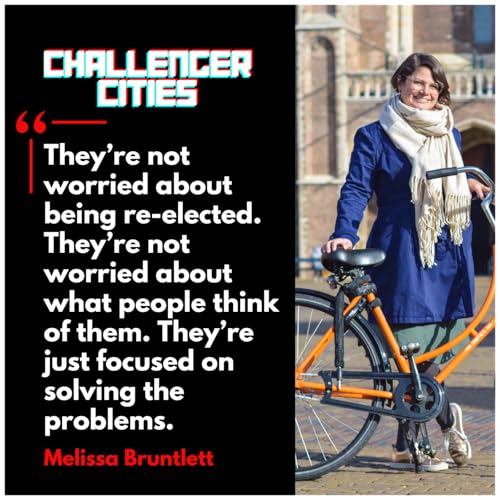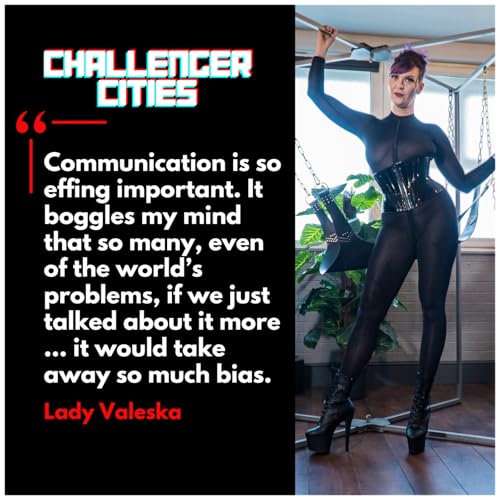This one’s a little different. We sat down with Lady Valeska, a professional dominatrix now based in London, to talk about what cities, workplaces, and leaders could learn from the world of kink.
It turns out, quite a lot!
We talked about power, shame, permission, and trust, but not in the ways you’d expect. Lady Valeska’s version of dominance isn’t about control, rather it's about awareness. She reads people the way good designers read context: through signals, not assumptions.
We got into:
- How communication and consent could fix more than just our sex lives.
- Why shame might be the most dangerous civic material ever invented.
- The death of anticipation in a world addicted to instant gratification.
- What the kink community understands about safety that most cities don’t.
- And why London’s chaos has its own erotic energy — while Toronto still plays it a little too polite.
It’s not an episode about sex. It’s about systems, culture and the trust it takes to make exploration feel safe.
Because whether you’re designing a city, a company, or a scene ... the rules are the same: communication, consent, boundaries, safe words and aftercare.
Chapters
- 00:00 Introduction to Kink and Dominatrix Culture
- 04:45 The Evolution of a Dominatrix
- 07:27 Communication and Consent in Kink
- 10:02 Creating a Safe Space for Exploration
- 12:43 The Dynamics of Shame and Acceptance
- 15:03 Gender Fluidity and Societal Norms
- 17:55 Cultural Differences in Leadership and Communication
- 20:22 The Impact of Technology on Kink and Sex Work
- 22:42 The Diversity of Kinks and Online Perceptions
- 25:11 The Importance of Failure in Personal Growth
- 27:46 Communication in Kink and Relationships
- 30:55 Cultural Perspectives on Kink and Acceptance
- 32:02 Comparing Life in Toronto and London
- 36:21 Generational Differences in Acceptance
- 39:05 Wishing for a Better Future: Free Healthcare for All
- 39:56 Exploring Taboo Conversations
- 40:19 Personal Growth Through Challenging Topics
 49 分
49 分 57 分
57 分 41 分
41 分 1 時間 5 分
1 時間 5 分 59 分
59 分 56 分
56 分 53 分
53 分 2025/09/2643 分
2025/09/2643 分

